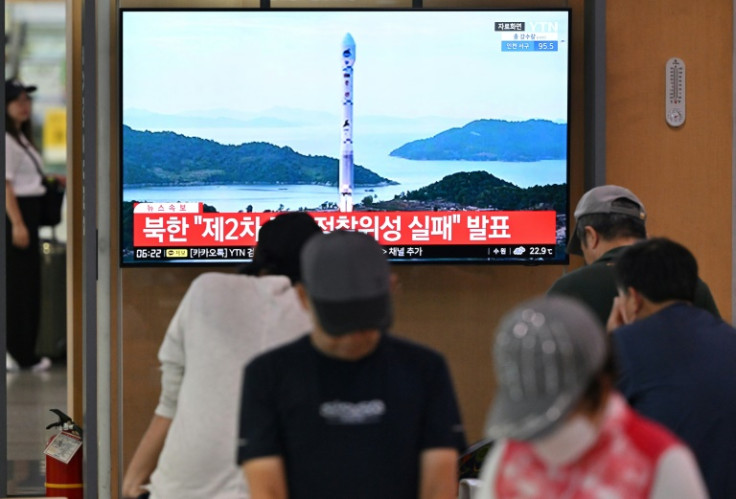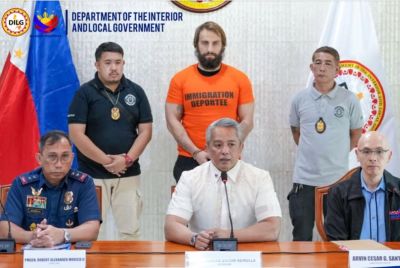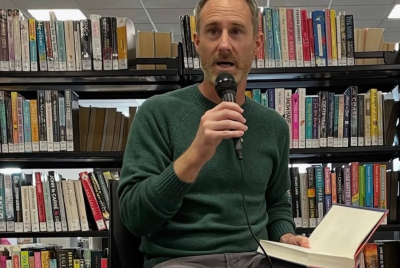North Korea Claims It Fired 'Military Spy Satellite,' Says Launch Was Successful
Seoul's spy agency has claimed that Pyongyang may have received support from Russia.

North Korea on Wednesday claimed that it successfully managed to put a military surveillance satellite into orbit.
The country has managed to put the spy satellite in orbit in its third attempt this year, amid increasing tensions with the United States.
Its claims have been confirmed by South Korea and Japan as well. "North Korea has fired what it claims is a military surveillance satellite in a southwards direction," AFP quoted South Korea's Joint Chiefs of Staff as saying.
The satellite launch was also confirmed by Japanese Prime Minister Fumio Kishida's office. In a Twitter post, he wrote: "North Korea has launched a suspected ballistic missile."
On the day of the launch, Tokyo had asked people from the southern region of Okinawa to take shelter. However, the alert was lifted soon after the reported launch. It needs to be noted that North Korea is banned by the United Nations from conducting satellite launches.
BREAKING: North Korea just launched a spy satellite with ballistic capabilities.
— Juanita Broaddrick (@atensnut) November 21, 2023
South Korea and Japan have threatened military action. Emergency alarms now going off in Japan.
pic.twitter.com/uKovZHw0qH
In a statement, the United States condemned North Korea over the launch, calling it a "brazen violation" of UN sanctions.
The launch "raises tensions and risks destabilising the security situation in the region and beyond," National Security Council Spokesperson Adrienne Watson said in a statement.
Did North Korea get Russia's help?
Seoul's spy agency has claimed that Pyongyang may have received support from Russia for its third attempt at launching a spy satellite. The launch comes weeks after North Korean dictator Kim Jong Un met Russian President Vladimir Putin in Vladivostok, Russia.
"It's much too early for the North Koreans to have integrated any assistance Russia may have agreed to supply," said Jeffrey Lewis, a non-proliferation expert at the Middlebury Institute of International Studies. "Maybe the Russians gave them some advice, but it's normal for countries to launch and learn."
Earlier this month, US Secretary of State Antony Blinken warned that military ties between North Korea and Russia were "growing and dangerous".
The West is worried that Pyongyang plans to provide weapons to Moscow to replenish shells and ammunition that have been heavily depleted during months of fighting in Ukraine.
With Russia's war in Ukraine on its way to entering its second year, Putin needs caches of ammunition, while Kim needs food provisions to fight North Korea's food shortage.
North Korean dictator Kim Jong Un has been displaying his collection of powerful, destructive missiles, which he uses to defend his supremacy. North Korea's capacity to launch nuclear strikes has grown to the point where there are calls to declare Pyongyang a nuclear weapons state.
It has been carrying out banned weapons tests to increase its nuclear and missile arsenals. Last year, it launched more than 70 ballistic missiles to carry out test launches of its biggest missiles, including banned nuclear-capable intercontinental missiles.
As a response to the developments over the last few months, South Korea and the United States have increased joint military exercises as North Korea continues to conduct weapon tests despite UN sanctions.
In February, North Korea launched a long-range ballistic missile into the sea off its east coast as a response to the upcoming US-South Korea military drills.
It has been accused of giving priority to its ballistic missile and nuclear weapons programmes even as the country starves due to a shortage of food. Several reports in July claimed that a number of North Koreans have been dying of hunger.
The Food and Agriculture Organisation of the United Nations has considered North Korea's population to be undernourished since before the COVID-19 pandemic began. It is believed that the pandemic, which led to further isolation in North Korea, is the leading cause of the country's escalating food crises.
The reports about North Korea facing food insecurity have started pouring in since 2021. Kim himself had made a reference to a "tense" situation in the crisis. That same year, the state-run KCTV channel also reported that the country was facing a "food crisis".
© Copyright IBTimes 2025. All rights reserved.






















